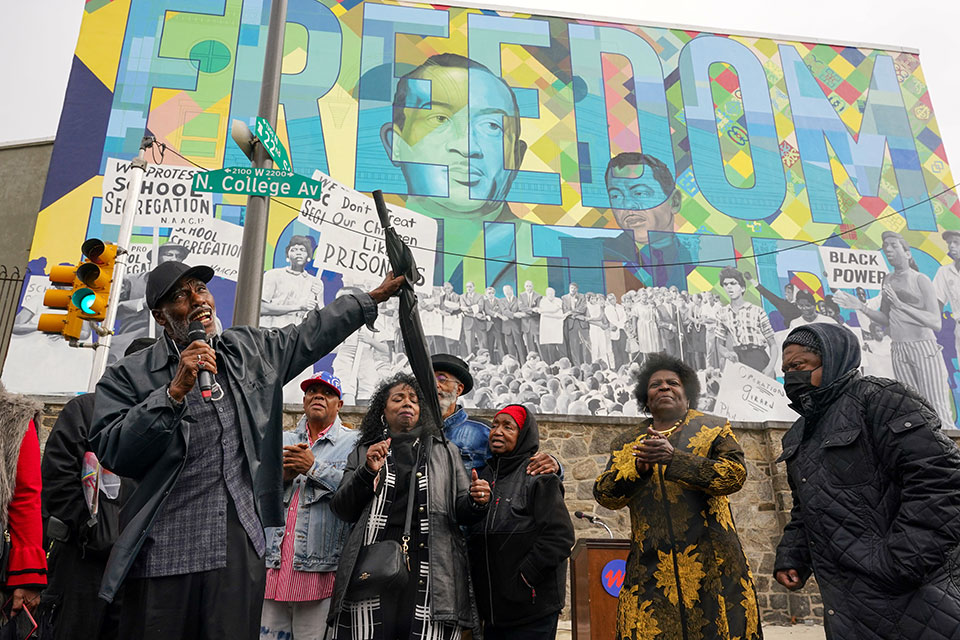
The cultural tradition of muralism in Northern Ireland predates the partition of the modern state. Despite its longevity this visual environment continues to be dominated by a few venerated scenes, characters, and historical episodes. These invariably elevate militarized and masculine subjects into a heroic status. Furthermore, on the rare occasions when a depiction breaks this orthodoxy it gains a flicker of attention as a photo opportunity in the local press. Thereafter it begins its quick descent into obscurity, not only fading in physical condition but also in the minds of its host population. But what if, though not only a radically different form but function, this powerful medium could contribute to a changing of detrimental mentalities?
Based on his recently completed PhD project, Dr. Kennedy will put forward a central argument that murals could be used as safe spaces for a mutual exchange of ideas. Instead of being inserted into a community as a passive backdrop, murals co-produced with consenting and considerate participants, would genuinely connect with the people who live with them. No longer passive, these sites would be activated whenever collective consciousness is raised and gathered around them. Activation may be political, educational, or cultural and it might not always have a celebratory tone to it. Nevertheless, it repeatedly draws our attention back to the subject matter and provides an explicit focal point for seeing the links between past, present and future. To appreciate the active site, we have to imagine the mural not simply as a noun with a completed appearance and singular meaning. Instead, once the mural has been verbed it can lose some of these limitations and we can understand how it might support ongoing processes of reconciliation and multiple strands of peacebuilding.
Joining Dr. Kennedy for this event will be a panel of experts with intimate knowledge of a short series of real-life example murals. These nearby works will be used as case studies to put some of this more abstract theory into specific context. This discussion will deal with some of the nuances behind the main argument: what are its strengths and weaknesses and how viable would it really be to implement? By doing so this imaginative exercise does not take place in some utopian fantasy realm but rather is rooted in the realities of Northern Irish working class communities. The case studies, put forward as candidates for potential activation, convey several crucial positions that will form the basis of the panel discussion. These include intersectional feminism, trade unionism, multiculturalism and masculinity, the relationship between philosophy and faith and the often-marginalised voices of young people and queer rights. The event hopes to inspire confidence among an audience of local stakeholders and members of the general public. Together we can explore the expansive and expressive range of art and activism. Collective brainstorming will open the discussion to gain further suggestions as to how murals, as a vast communication network, could provide the momentum toward the positive, progressive change that a democratic majority wishes to see.
Share: